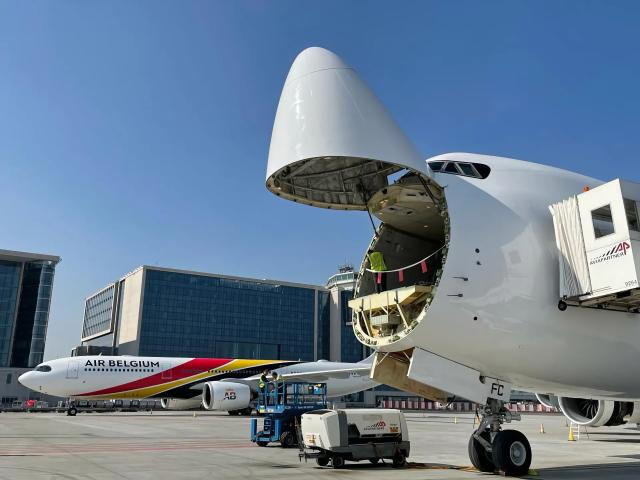
BRUSSELS, Belgium – Plans by UK-based Air One International Holdings and Dutch firm Peso Aviation Management to acquire the cargo operations of Air Belgium have been abruptly terminated following a court reversal. The Nivelles enterprise court, which initially approved the takeover in December, revoked the acquisition process on March 6th, casting uncertainty over the future of Air Belgium's cargo division.
The proposed acquisition, which aimed to salvage Air Belgium's struggling cargo business, had reached a critical stage, requiring the procurement of essential operating and aviation licenses from Belgian aviation authorities. A newly formed entity, Air One Belgium (AOB), was to be established, with 51% ownership held by Peter Scholten of Peso Aviation Management and 49% by Air One International Holdings. This entity was slated to absorb Air Belgium's cargo assets, existing contracts, and key personnel.
Air Belgium's decision to pivot exclusively to cargo and ACMI (Aircraft, Crew, Maintenance, and Insurance) services in September 2023 followed significant financial challenges and mounting debt, leading to the discontinuation of its passenger operations. The airline subsequently entered judicial restructuring, actively seeking investors to ensure its long-term financial viability.
Air One International Holdings, which appears to have close ties to One Air, a UK-based cargo airline operating a fleet of Boeing 747 freighters, was positioned to bring substantial operational expertise and resources to Air Belgium's cargo division. Peso Aviation Management, with its focus on aviation management and consulting, was expected to contribute strategic direction and industry knowledge.
The initial court approval in December had signaled a potential lifeline for Air Belgium's cargo business, which faced an increasingly competitive and challenging market. However, the recent court reversal has derailed these plans, leaving the airline in a precarious position. The specific reasons for the court's decision have not been disclosed, but it is believed to be related to concerns over the financial robustness of the new company, and some issues with the licensing procedures.
Air Belgium, founded in 2016, had initially positioned itself as a long-haul, low-cost carrier. However, it struggled to achieve profitability amid rising fuel costs and fierce competition from established airlines. The airline's strategic shift to cargo and ACMI services was seen as a necessary move to ensure its survival.
The collapse of the acquisition deal raises significant questions about the future of Air Belgium's cargo operations and the potential impact on its employees and customers. The airline is now faced with the challenge of finding alternative solutions to secure its financial stability and maintain its position in the cargo market. Industry analysts suggest that Air Belgium may need to pursue further restructuring measures or seek new investors to navigate the current crisis.
[Copyright (c) Global Economic Times. All Rights Reserved.]






























